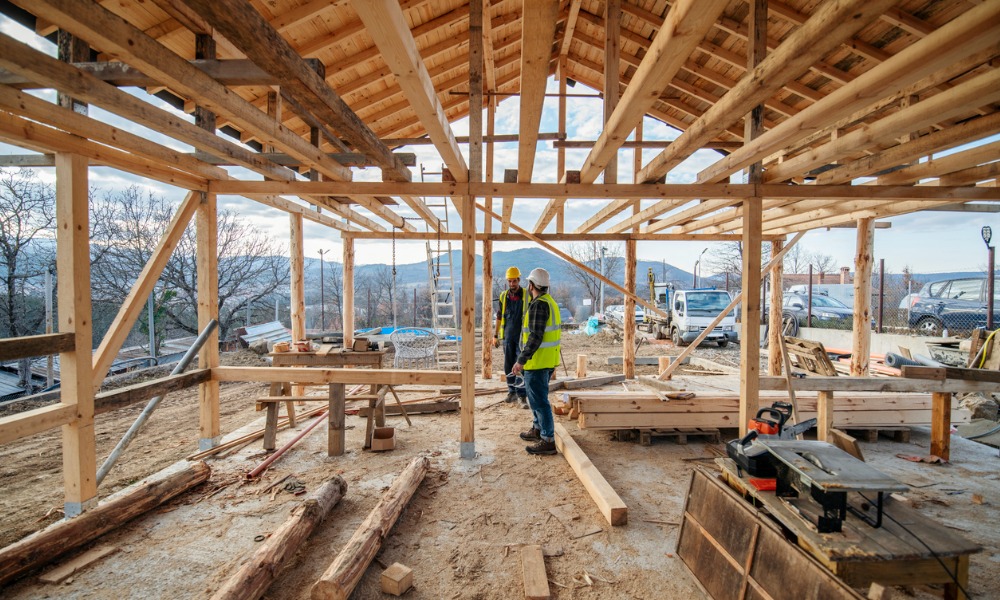Builders are increasingly pessimistic about the construction outlook in Canada

Overall homebuilder sentiment on the construction outlook is continuing to worsen, with the Canadian Home Builders’ Association (CHBA) revealing its Housing Market Index (HMI) plunged yet again in 2024’s second quarter.
The negative outlook on new home sales suggests that housing starts, especially for homeownership, won't likely see a significant increase any time soon. HMIs in Ontario and British Columbia have reached record lows, a cause of concern because these provinces face the greatest challenges in housing affordability while having the highest demand for more housing supply.
Despite this, the full effects of the slowdown have yet to be felt in housing starts numbers because of long building timelines, especially for multi-family buildings.
The HMI is a sentiment indicator that assesses current selling conditions, expectations for selling conditions over the next six months, and the level of sales office traffic (or other measures of prospective buyer interest).
This makes it a reliable predictor of housing starts six months or more into the future. In Q2 2024, the single-family HMI had a score of 29.9 out of 100, five points lower than the previous quarter and 10 points lower than the same period last year. Similarly, the multi-family HMI for Q2 2024 dropped to 32.5, down 5.4 points from the previous quarter and 8.5 points from Q2 2023.
The low HMI scores in Ontario and British Columbia reflect the high home prices and the difficulty buyers face in accessing mortgages. In these provinces, large urban centers suffer from high development taxes and municipal processes that hinder supply, exacerbating the housing supply deficit and driving up prices.
As a result, 48% of HMI respondents said they're building fewer units than they normally would because of challenges with mortgage qualifications for their customers, and 22% have stated that lack of sales has led to the cancellation of projects. Overall, 61% of respondents expect to see only half the number of housing starts this year compared to 2023.
“The slowly dropping interest rate environment is not enough to counter the restrictive mortgage rules contributing to buyers’ inability to enter the market with today’s house prices,” CHBA CEO Kevin Lee commented.
“Canada continues to need both more supply and changes to mortgage rules to help drive the construction of that supply. If buyers can’t get better access to mortgages, and municipalities don’t lower development taxes and address the barriers to home building, the chronic undersupply of homes will only get worse in many areas of the country, which will drive up house prices again. Much more policy change is needed to turn the tides and get housing supply momentum underway.”
As of August 1, first-time buyers of new construction homes can now access 30-year amortizations on insured mortgages. “This is an important action to help the next generation of well-qualified individuals into the market. We do need more relief on the mortgage front though, like expanding 30-year amortizations on all insured mortgages for new construction,” said Lee. “We also need revisions to the mortgage stress test to make it dynamic and lower it at higher rates. Every level of government must tackle this problem from every angle, in concert.”



